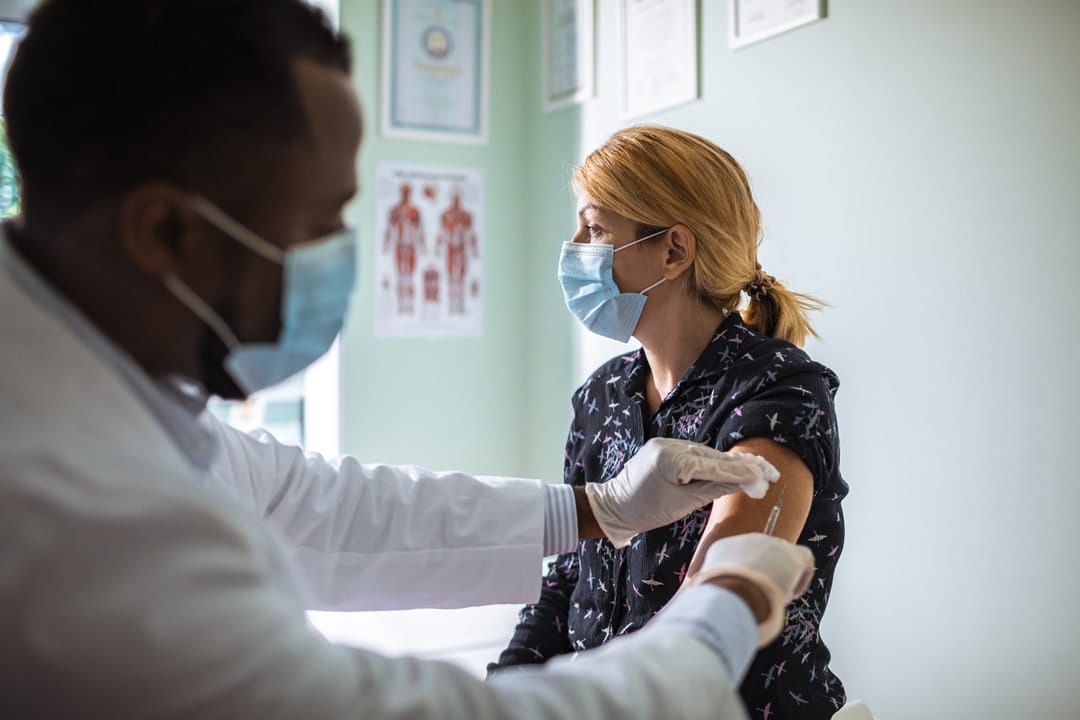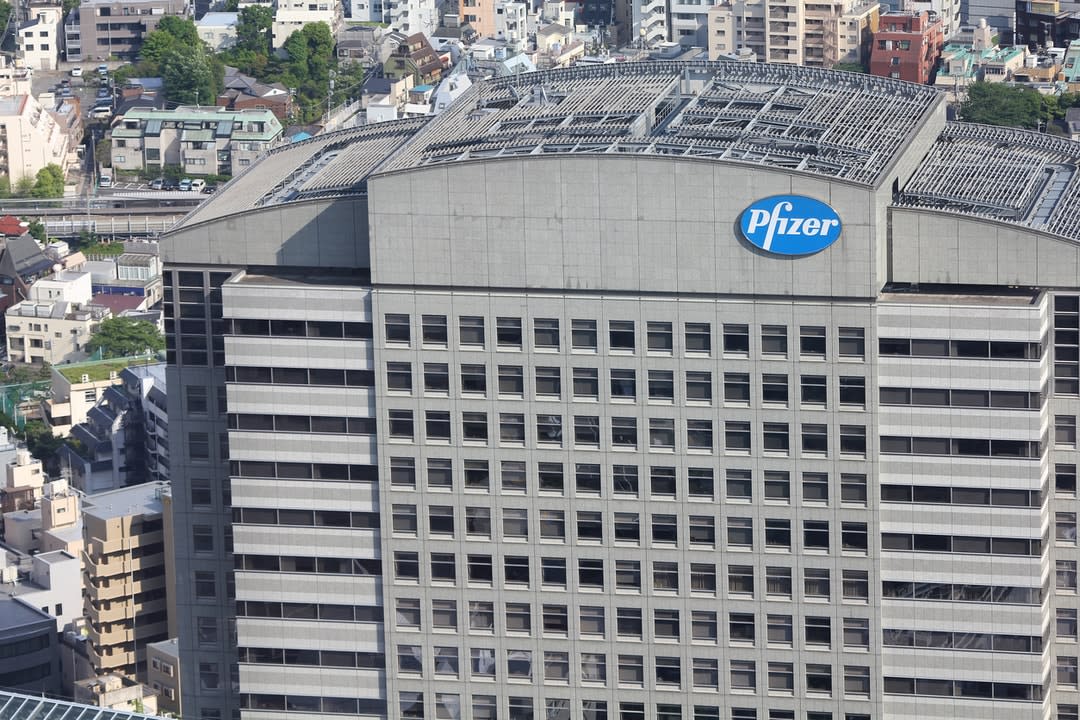
German biotech company BioNTech and US pharmaceutical Pfizer announced on Monday promising early results from their phase three clinical trial for a vaccine against SARS-CoV-2, the virus that causes COVID-19.
These early results are what is known as an “interim analysis”. It’s an early look at the data before a study is complete, to understand if there is any indication of whether the vaccine might work.
Read more: From Baghdad to Melbourne: Dr Harry Al-Wassiti's remarkable journey
Currently, this trial has enrolled 43,538 volunteers, giving half the volunteers two doses of the vaccine, and the other half two doses of a placebo. These volunteers then continued their normal lives, but they were monitored for any symptoms that could be COVID-19, with testing to confirm.
Analysis of 94 volunteers with confirmed COVID-19 suggests the vaccine has an efficacy of more than 90%.
This means that if you took 10 people who were going to get sick from COVID-19 and vaccinated them, only one out of 10 would now get sick.
Read more: Australia's just signed up for a shot at nine COVID-19 vaccines. Here's what to expect
Can we get excited yet?
There's more data to come. This is a press release, and the data have not undergone “peer review” through scientific publication, although it's been assessed by an independent monitoring board. The study also won’t be complete until 164 volunteers have confirmed COVID-19, and the estimate of efficacy may therefore change. Finally, the volunteers must be monitored for a defined period of time after vaccination for any side effects, and this must be completed.
Important questions also remain. It’s unclear how long protection will last, as this study has only been underway for three months. It’s unclear if this vaccine protects against severe disease, or if it will work equally well in everyone. For example, a phase one clinical trial with this vaccine showed that immune responses were lower in older people.

But 90% efficacy is striking. To give some context, the US Food and Drug Administration indicated it would licence a SARS-CoV-2 vaccine with 50% efficacy. The flu vaccine often provides about 60% efficacy, and the mumps vaccine, which is currently the fastest vaccine made, at four years, provides about 88% efficacy.
The BioNTech/Pfizer vaccine could outstrip that, after just nine months of development. This level of efficacy means virus transmission could be very effectively controlled.
That has the research community excited. It bodes well for other vaccines currently being tested for SARS-CoV-2, and we could end up with multiple successful vaccines. This would be great, because some might work better in certain populations, such as older people.
Multiple vaccines could also be manufactured using a broad range of established infrastructure, which would accelerate vaccine distribution.
Australia has no capacity to produce mRNA on a commercial scale
The BioNTech/Pfizer vaccine is what’s called an mRNA vaccine.
As this article by Associate Professor Archa Fox, an expert on molecular cell biology from the University of Western Australia, explains:
"mRNA vaccines are coated molecules of mRNA, similar to DNA, that carry the instructions for making a viral protein.
"After injection into muscle, the mRNA is taken up by cells. Ribosomes, the cell’s protein factories, read the mRNA instructions and make the viral protein. These new proteins are exported from cells, and the rest of the immunisation process is identical to other vaccines: our immune system mounts a response by recognising the proteins as foreign and developing antibodies against them.
The problem is, Australia can’t make mRNA vaccines onshore yet.
The Australian government has an agreement for 10 million doses of the BioNTech/Pfizer vaccine. Since this vaccine requires two doses, this agreement is sufficient for five million Australians. It’s unclear how long it will take until any vaccine is widely available, but we may hear more about this in the coming weeks and months.
The vaccine requires storage at a temperature below -60℃. This will certainly be a challenge for shipping to Australia and local distribution, although not impossible.
One solution to this problem is to form vaccination centres to roll out the vaccine once it becomes available. In a briefing by Pfizer, the company said it will use ultra-low-temperature shipment strategies, and the vaccine can then be distributed on “dry-ice”.
Currently, Australia has no capacity to produce mRNA on a commercial scale, given the technology’s novelty. But we (the authors) and others have been working to coordinate and build the manufacturing capacity in Australia for future mRNA vaccine and therapeutics. With financial support aimed at private-public mRNA manufacturing collaboration, Australia can equip itself with this vital technological asset.
Read more: Australia may miss out on several COVID vaccines if it can't make mRNA ones locally

This article originally appeared on The Conversation, and was co-authored with Kylie Quinn, Vice-Chancellor's Research Fellow, School of Health and Biomedical Sciences, RMIT University.





